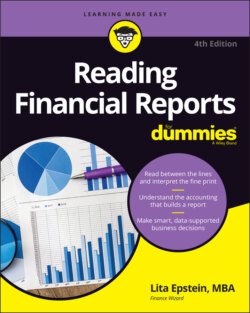Читать книгу Reading Financial Reports For Dummies - Lita Epstein - Страница 59
The rules of the Sarbanes-Oxley Act
ОглавлениеAll the scandals about public companies that emerged in the early 2000s have made this entire reporting process riskier and more costly for company owners. In 2002, Congress passed a bill called the Sarbanes-Oxley Act to try to correct some of the problems in financial reporting. This bill passed as details emerged about how corporate officials from companies like Enron, MCI, and Tyco hid information from the SEC.
New SEC rules issued after the Sarbanes-Oxley Act passed require CEOs and CFOs to certify financial and other information contained in their quarterly and annual reports. They must certify that
They've established, maintained, and regularly evaluated effective disclosure controls and procedures.
They've made disclosures to the auditors and audit committee of the board of directors about internal controls.
They've included information in the quarterly and annual reports about their evaluation of the controls in place, as well as about any significant changes in their internal controls or any other factors that could significantly affect controls after the initial evaluation.
If a CEO or CFO certifies this information and that information later proves to be false, they can end up facing criminal charges. Since the passage of the Sarbanes-Oxley Act, companies have delayed releasing financial reports if the CEO or CFO has any questions rather than risk charges. You'll probably hear more about delays in reporting as CEOs and CFOs become more reluctant to sign off on financial reports that may have questionable information. Shareholders often panic when they hear about a delay, and stock prices drop.
The Sarbanes-Oxley Act has added significant costs to the entire process of completing financial reports, affecting the following components:
Documentation: Companies must document and develop policies and procedures relating to their internal controls over financial reporting. Although an outside accounting firm can assist with the documentation process, managers must be actively involved in the process of assessing internal controls — they can't delegate this responsibility to an external firm.
Audit fees: Independent audit firms now look a lot more closely at financial statements and internal controls in place over financial reporting, and the SEC's Public Company Accounting Oversight Board (PCAOB) now regulates the accounting profession. The PCAOB inspects accounting firms to be sure they're in compliance with the Sarbanes-Oxley Act and SEC rules.
Legal fees: Because companies need lawyers to help them comply with the new provisions of the Sarbanes-Oxley Act, their legal expenses are increasing.
Information technology: Complying with the Sarbanes-Oxley Act requires both hardware and software upgrades to meet the internal control requirements and the speedier reporting requirements.
Boards of directors: Most companies must restructure their board of directors and audit committees to meet the Sarbanes-Oxley Act's requirements, ensuring that independent board members control key audit decisions. The structure and operation of nominating and compensation committees must eliminate even the appearance of conflicts of interest. Companies must make provisions to give shareholders direct input in corporate governance decisions. Businesses also must provide additional education to board members to be sure they understand their responsibilities to shareholders.
